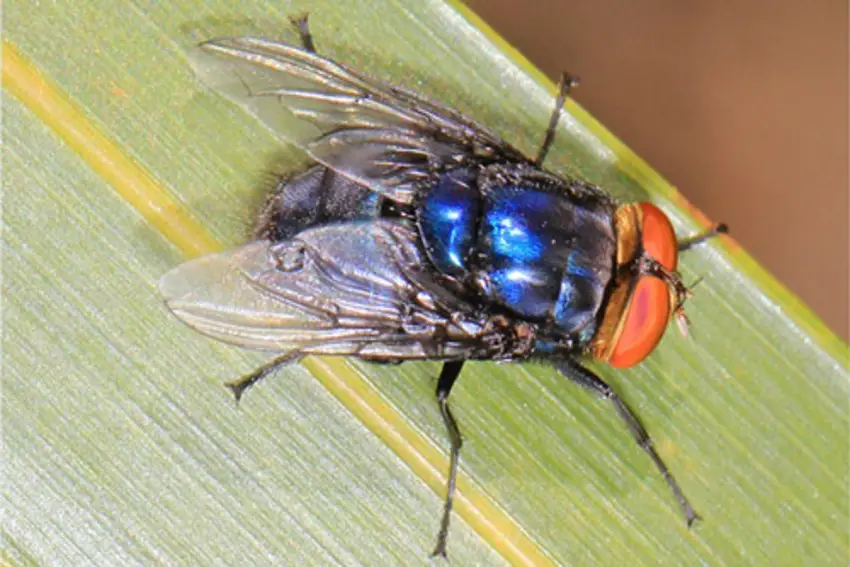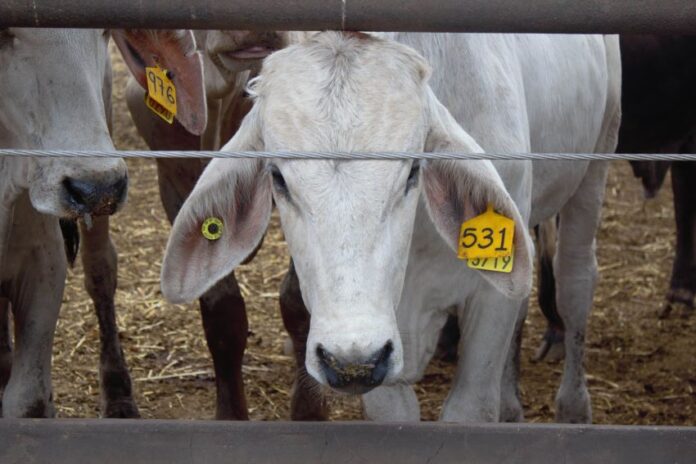The U.S. on Sunday suspended imports of livestock through the southern U.S. border to prevent the spread of New World screwworm, a move that was swiftly criticized by Mexico
“I am announcing the suspension of live cattle, horse and bison imports through U.S. southern border ports of entry effective immediately,” U.S. Agriculture Secretary Brooke Rollins said in a social media post.
🚨Due to the threat of New World Screwworm I am announcing the suspension of live cattle, horse, & bison imports through U.S. southern border ports of entry effective immediately.
The last time this devastating pest invaded America, it took 30 years for our cattle industry to…
— Secretary Brooke Rollins (@SecRollins) May 11, 2025
Mexican Agriculture Minister Julio Berdegué initially rebuked the decision on his official social media account, according to El Universal newspaper, writing that such “unilateral measures” do not contribute to joint efforts to control the New World screwworm (NWS) scourge.
However, Berdegué soon replaced the message, saying that while he did not agree with the decision, he was confident an agreement on how to deal with the infestation could be reached.
The NWS plague is a devastating parasitic infestation that can be fatal for livestock, pets, wildlife, and, on rare occasion, humans.
Just over two months ago, the U.S. and Mexico reached an agreement on the handling of the flesh-eating maggots, which infest livestock and wildlife by burrowing into the skin of living animals.
Cattle trafficking in Central America, linked to the spread of #screwworm, allows criminal networks to seize territory for drug trafficking, launder money, extort, and diversify their income. Learn more: https://t.co/HLitYcrglL pic.twitter.com/f3341gdvPg
— InSight Crime (@InSightCrime) December 1, 2024
While Rollins acknowledged Berdegué’s efforts to address the plague, she said the suspension of livestock imports will allow the U.S. to reassess whether current mitigation standards remain sufficient. She insisted the decision was “not about politics or punishment of Mexico.”
“The protection of our animals and safety of our nation’s food supply is a national security issue of the utmost importance,” Rollins said in a U.S. Department of Agriculture (USDA) press release. “Once we see increased surveillance and eradication efforts, and the positive results of those actions, we remain committed to opening the border for livestock trade.”
The USDA acknowledged “the economic impact” the suspension will have on both Mexico and the U.S., but took the decision after the pest had been detected in Oaxaca and Veracruz, about 1,120 km from the U.S. border.
“There has been unacceptable northward advancement of NWS and additional action must be taken to slow the northern progression of this deadly parasitic fly,” the USDA said.
The U.S. eradicated NWS in the 1960s, but it remains endemic in South America and the Caribbean, with outbreaks occurring in Central America and Mexico.
Rollins said the last time the NWS invaded the U.S., it took 30 years for its cattle industry to recover. “This cannot happen again,” she said, adding that the suspension would be imposed on a “month-by-month basis.”

In September 2024, Mexico’s Agriculture Ministry published an advisory about the screwworm in which it issued recommendations for the control and prevention of the plague.
Two months later, the U.S. temporarily paused imports of Mexican cattle after a case of NWS was identified in the southernmost state of Chiapas.
Mexican cattle exports to the U.S. were resumed in February following the signing of a memorandum of understanding.
Late last month, Rollins wrote to Berdegué warning that imports of Mexican cattle would once again be restricted if additional steps to address the NWS plague were not taken.
Just four days ago, Berdegué met with Rollins in Washington, D.C., to discuss, among other issues, the installation of a plant in Chiapas to create sterile NWS flies, a process that can lead to a decline in the overall screwworm population.
With reports from Reuters, Infobae, El Economista and USA Today
